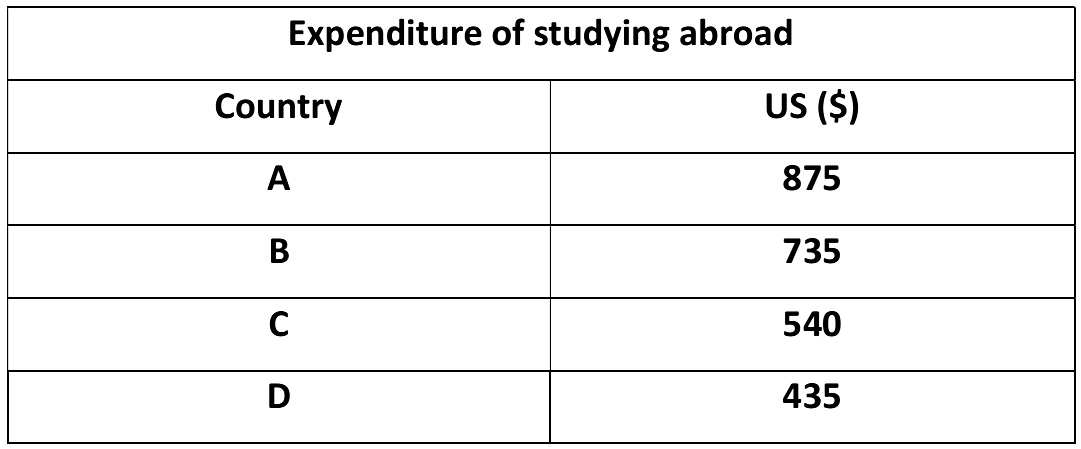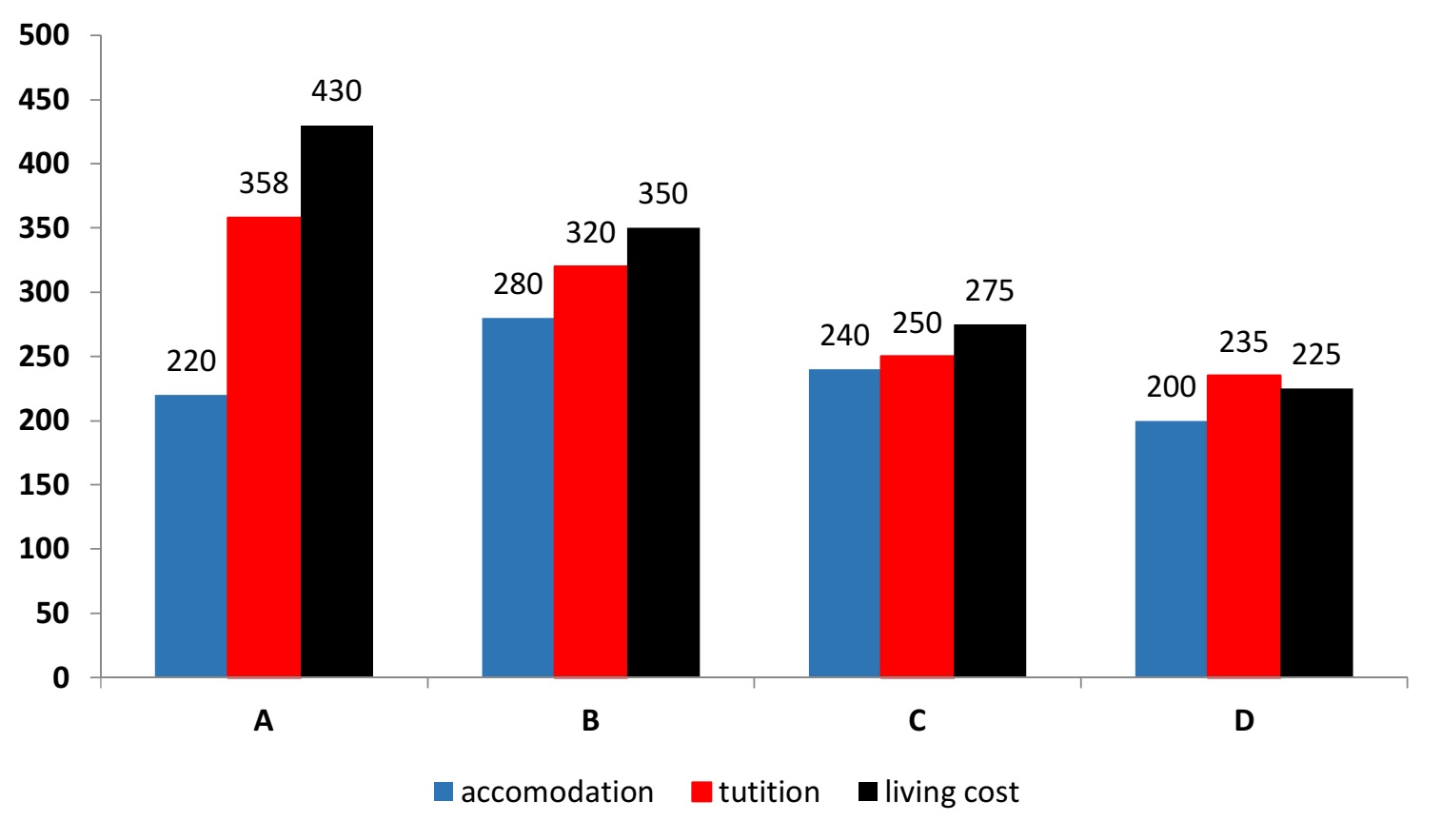IELTS Writing Recent Actual Test 72
WRITING TASK 1
You should spend about 20 minutes on this task
The table and chart below provide a breakdown of the total expenditure and the average amount of money spent by students per week while studying abroad in 4 countries.
Write at least 150 words.


WRITING TASK 2
You should spend about 40 minutes on this task
Write about the following topic:
In some parts of the world it is increasingly popular to research the history of one’s own family. Why do people want to do this? Is it a positive or negative development?
Give reasons for your answer and include any relevant examples from your own knowledge or experience.
Write at least 250 words.
SAMPLE ANSWER IELTS WRITING TEST 72
WRITING TASK 1The table and bar chart illustrate the total spending and the average expenditure per week for accommodation, tuition and living costs of students studying abroad in four countries.
Overall, it is clear that the cost of studying in country A is the highest. Also, international students in all countries, except for country D, have to pay the largest amount of money each week for living costs, while they spend the least on accommodation.
Studying abroad in country A costs $875, which is $140 and $335 more than studying in country B and C respectively. International students in country D, however, need to pay a significantly lower amount of money ($435) than those studying in the other three countries.
Overseas students in country A spend an average of $430 per week on living expenses, while those in country B spend only $350. In contrast, the weekly cost of accommodation in country B is $60 higher than that of country A, at $280. The figures for tuition fees in both countries are over $300 a week. Regarding the other two countries, the expenditures for the three categories are all below $300, with the smallest figure being seen in accommodation in country D, at only $200 per week.
(205 words)
WRITING TASK 2People nowadays are becoming increasingly keen to learn about their family history. There are some compelling reasons for this; and I strongly feel that this is a positive development.
Most people do research on their family history to find out whether their ancestors had similar personality traits and to have deeper understanding about their family roots and heritage. Others study their family history background for less significant reasons, one of which is curiosity. For example, my uncle used to spend a great deal of time and effort tracing my family tree back to the 18th century just out of curiosity. Also, I think that news media have a major part to play in this trend. There are a lot of news articles and advertisements these days that encourage genealogy and convince people that it is necessary to know about their ancestry.
In my view, this is a good way to teach children about history and how their ancestors lived, which is linked in part to family traditions. And it is even more important for children to carry on such valuable and unique traditions, given that this fast changing world is somehow making young generations ignore the spiritual legacy that their ancestors left. On top of that, family history can be a fascinating topic of discussion whenever there is a family meeting. How my grandparents struggled to raise their offspring during the Vietnam War, for example, has become my father’s favorite subject when all my relatives gather for a traditional holiday feast.
In conclusion, people like to study their family history for a variety of reasons as I have discussed, and personally, I consider this a positive modern trend.
(278 words)
